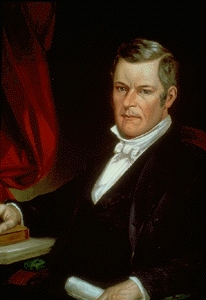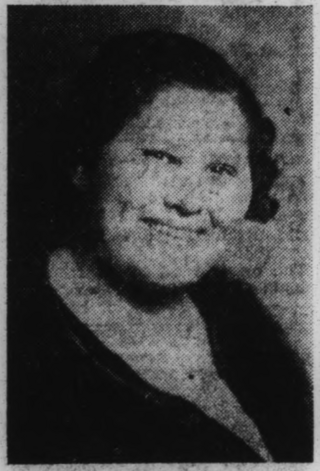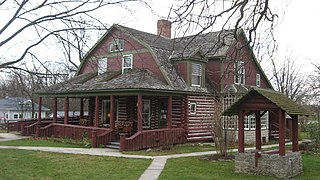Related Research Articles

Sherman "Shay" Minton was an American politician and jurist who served as a U.S. senator from Indiana and later became an associate justice of the Supreme Court of the United States; he was a member of the Democratic Party.

James Brown Ray was an Indiana politician and the only Indiana Senate president pro tempore to be elevated to governor of the state of Indiana. Ray served during a time when the state transitioned from personal politics to political parties, but never joined a party himself. Taking office one week before his 31st birthday, he became the state's youngest governor and served from 1825 to 1831, the longest period for an Indiana governor under the state constitution of 1816. During Ray's term as governor the state experienced a period of economic prosperity and a 45 percent population increase. He supported projects that encouraged the continued growth and development of the young state, most notably internal improvements, Native American removal, codification of Indiana's laws, improved county and local government, and expanded educational opportunities. Ray was known for his eccentricity and early promotion of a large-scale railroad system in the state. His support for new railroad construction and alleged involvement in several scandals caused him to lose popularity among voters. Ray's opponents who favored the creation of canals considered railroads to be an impractical, utopian idea. Following Ray's departure from political office, he continued to advocate for a statewide railroad system until his death in 1848.

Thomas Taggart was an Irish-American politician who was the political boss of the Democratic Party in Indiana for the first quarter of the twentieth century and remained an influential political figure in local, state, and national politics until his death. Taggart was elected auditor of Marion County, Indiana (1886–1894), and mayor of Indianapolis. His mayoral administration supported public improvements, most notably the formation of the city's park and boulevard system. He also served as a member of the Democratic National Committee (1900–1916) and as its chairman (1904–1908). Taggart was appointed to the U.S. Senate in March 1916, but lost the seat in the November election.

Maurice Clifford Townsend was an American politician and the 35th governor of the U.S. state of Indiana from 1937 to 1941. During his term, he led relief efforts during and after the Great Flood of 1937.

Benjamin Parke was an American lawyer, politician, militia officer, businessman, treaty negotiator in the Indiana Territory who also served as a United States federal judge in Indiana after it attained statehood in 1816. Parke was the Indiana Territory's attorney general (1804–1808); a representative to the territory's first general assembly (1805); its first territorial delegate to the United States House of Representatives (1805–1808); one of the five Knox County delegates to the Indiana constitutional convention of 1816; and a territorial court judge (1808–1816). After Indiana attained statehood, Parke served as the first United States District Judge of the United States District Court for the District of Indiana (1817–1835).
Baker & Daniels LLP is a predecessor to the firm Faegre Baker Daniels LLP, which resulted after the firm merged in 2012 with Minneapolis-based Faegre & Benson. Baker & Daniels counseled clients in transactional, regulatory, and litigation issues throughout the United States and around the world. Founded in 1863 by Thomas Hendricks, Conrad Baker, and Oscar B. Hord as Baker, Hord, and Hendricks, its founders all died in 1880s. Baker's son, Albert Baker, took ownership of the firm and took on a new partner, Edward Daniels, renaming the firm Baker & Daniels.

Tucker v. State of Indiana, 218 Ind. 614, 35 NE2d 270 (1941), was a landmark decision case by the Indiana Supreme Court that ruled that the Governor of Indiana is the chief executive of the State of Indiana and that the Indiana General Assembly has no authority to delegate or regulate authority that was granted to that office by the Constitution of Indiana. Until the decision by the court, it was held by the General Assembly that it could delegate and revoke executive authority at will.

The Golden Age of Indiana Literature is a period from 1880 to 1920 when many nationally and internationally acclaimed literary works were created by natives of the state of Indiana. During this time, many of the United States' most popular authors came from Indiana. Maurice Thompson, George Ade, Booth Tarkington, Theodore Dreiser, Edward Eggleston, Frank McKinney Hubbard, George Barr McCutcheon, Meredith Nicholson, Gene Stratton Porter, Lew Wallace, and James Whitcomb Riley were foremost among the Hoosier authors.

Sarah Tittle Bolton née Barrett was an American poet and women's rights activist who is considered an unofficial poet laureat of Indiana. Bolton collaborated with Robert Dale Owen during Indiana's 1850–1851 constitutional convention to include the recognition of women's property rights in the revised state constitution of 1851. Bolton was little known outside of Indiana, and her writings have been mostly forgotten. "Paddle Your Own Canoe" (1850), her most famous poem, and "Indiana," a poetic tribute to her longtime home, are among her best-known poems.
The Senate Lobby Investigation Committee was a special committee that once operated within the United States Senate during the 1930s and 1940s to investigate lobbyists. The committee was chaired by Hugo Black, and upon his appointment to the United States Supreme Court, it was chaired by Sherman Minton.

Katherine "Flossie" Bailey was a civil rights and anti-lynching activist from Indiana. She established a local chapter of the National Association for the Advancement of Colored People (NAACP) in Marion, Indiana, in 1918 and became especially active fighting for justice and equality following the double lynching of Thomas Shipp and Abram Smith in 1930. As president of the Indiana NAACP, Bailey was pivotal in lobbying for passage of a statewide anti-lynching law in Indiana in 1931 and advocated for a similar bill at the national level. She was also a recipient of the national NAACP's Madam C. J. Walker Medal.

Gene Stratton-Porter Cabin, , known as the Limberlost Cabin and the Limberlost State Historic Site, was the former home of Gene Stratton Porter, a noted Indiana author who lived in the home from 1895 to 1913. The two-story, fourteen-room log cabin is located near the Limberlost Swamp on the outskirts of Geneva in Adams County, Indiana. Stratton-Porter designed the Queen Anne-style rustic home with the help of an architect. It was listed on the National Register of Historic Places in 1974.
Alfred J. Pivarnik was a justice of the Indiana Supreme Court from May 13, 1977, to December 14, 1990.

The Propylaeum, also known as the John W. Schmidt House or as the Schmidt-Schaf House, is a historic home and carriage house located at 1410 North Delaware Street in Indianapolis, Marion County, Indiana. The Propylaeum was named after the Greek word "propýlaion," meaning "gateway to higher culture." The property became the headquarters for the Indianapolis Woman's Club in 1923, as well as the host for several other social and cultural organizations. It was initially built in 1890-1891 as a private residence for John William Schmidt, president of the Indianapolis Brewing Company, and his family. Joseph C. Schaf, president of the American Brewing Company of Indianapolis, and his family were subsequent owners of the home.

The 1904 Indiana gubernatorial election was held on November 8, 1904 in all 92 counties in the state of Indiana. Frank Hanly was elected governor over his Democratic opponent, John W. Kern.

Ada Estelle Schweitzer was an American public health advocate for women and infants in Indiana, an expert in infant health care, and a pioneer in public health in the early twentieth century. As the director of the Indiana State Board of Health's Division of Child and Infant Hygiene from 1919 to 1933, Schweitzer is best known for organizing and supervising Indiana's Better Baby contests at the Indiana State Fair from 1920 to 1932. Schweitzer's and her staff's educational outreach activities also helped change attitudes about child and maternal health. Statistics confirm that the state's infant mortality rate decreased during her years as a public health leader in Indiana to the fourth lowest in the United States, an accomplishment that was partly attributed to the efforts of her division. In addition to her work for Indiana's State Board of Health, Schweitzer was the author of numerous articles on children's health and was elected as president of the American Association of Women in Public Health in 1928.

Sherman Minton was nominated to serve as an associate justice of the Supreme Court of the United States by U.S. President Harry S. Truman on September 14, 1949, after the death in office of Wiley Rutledge created a vacancy on the Supreme Court. Per the Constitution of the United States, Minton's nomination was subject to the advice and consent of the United States Senate, which holds the determinant power to confirm or reject nominations to the U.S. Supreme Court. The nomination was met with a mixed reception and faced active opposition stemming both from the belief that Minton would be a liberal justice and from his history as a New Deal-supporting member of the United States Senate. There was an unsuccessful effort to compel Minton to testify before the United States Senate Committee on the Judiciary. Nevertheless, the nomination was approved by a 48–16 vote of the United States Senate on October 4, 1949.

The 1846 Indiana gubernatorial election was held on August 3, 1846.
References
- ↑ Gugin, Linda; St. Clair, James E, eds. (2006). The Governors of Indiana . Indiana Historical Society Press in cooperation with the Indiana Historical Bureau – via Internet Archive. LCCN 2005-56796; ISBN 0-8719-5196-7, 978-0-8719-5196-0; OCLC 62697186(all editions).